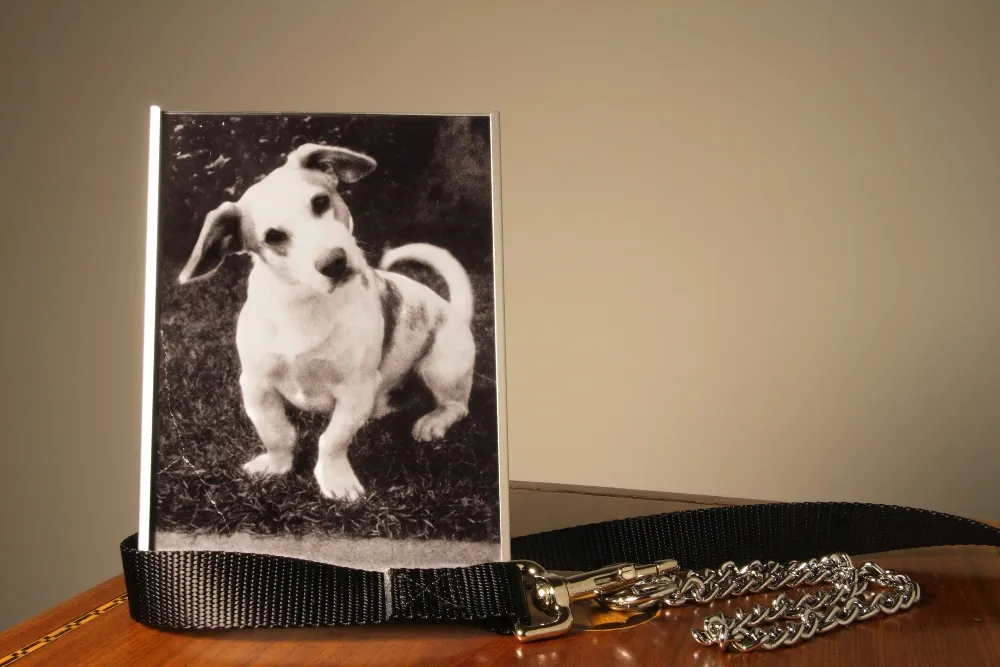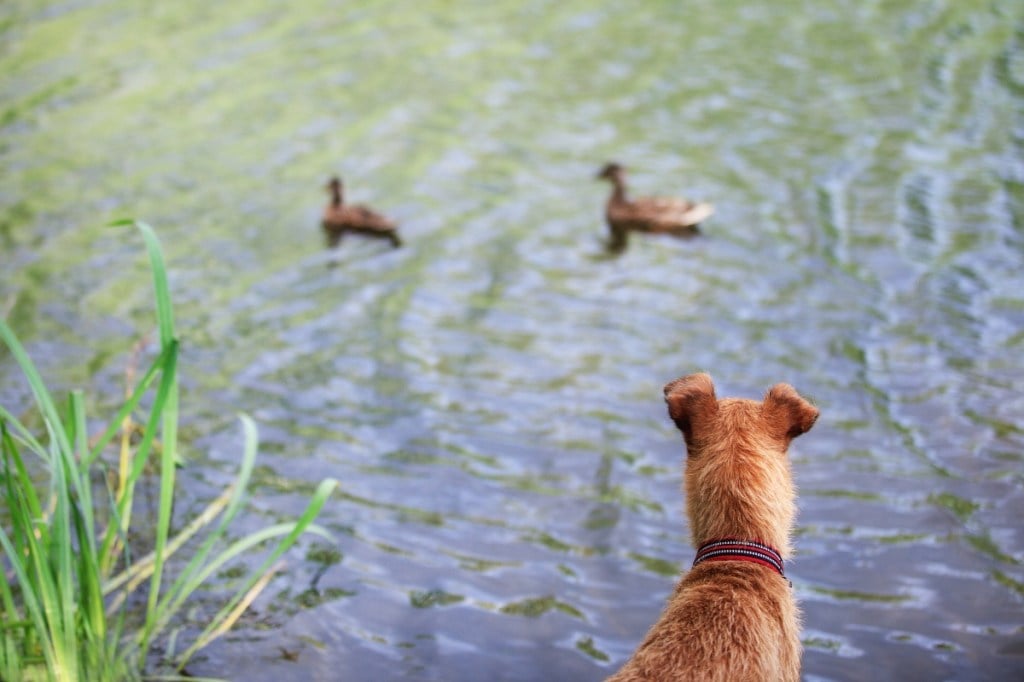Key Takeaways
- For most pet parents, losing a pet is painful and will take some time to grieve, perhaps even months or years.
- For some people, such as seniors who are isolated, and children, the loss can be especially gut-wrenching.
- You can take some steps to ease the sadness, such as spending time with friends, memorializing your pet and helping out at a local shelter.
Table of Contents
Grieving the loss of a pet is complex and painful, as you are marking the loss of a companion, unconditional love, emotional support, and a significant part of your daily routines. Though this is a difficult time and there is no easy way through it, it’s important to be gentle with yourself.
How long will the grief last?
While most pet parents would say they never “get over” the loss of a beloved pet, with time, the pain will fade, just like with any other loss. For some people, it may take weeks; for others, months or years. One small study found that the length of intense grief from a pet loss varied from three months (25%) to 12-19 months (50%) to up to six years (25%).
Sometimes it’s adopting a new pet that helps people focus their love on a furry family member and lessens the emotional ache. Still, it’s important to allow time for grieving and not rush into trying to replace the lost pet.
Extra painful losses
In some situations, the loss can be extra painful, such as sudden death involving a younger pet. If it’s due to an accident or undetected illness, the pet parent may feel guilty about a mistake or not doing more for their pet. If the pet parent had to decide the right time for euthanasia, they might wonder if they were too hasty.
The loss for people living alone or isolated, such as older people, can be especially acute. A pet may have been their constant companion and given their life purpose. Studies prove that pets help with anxiety, stress and dementia in older adults and keep them more active.
Similarly, losing a pet to a child could be extremely upsetting. Children bond with pets, often even more so than adults, and it could be the first time a child has experienced a loss due to death. Experts say it’s best to be honest with your child about what has happened to the pet and help them through it by talking, reading children’s books about loss, art therapy and memorializing the pet.
Anticipatory grief
Sometimes people start experiencing grief while their pet is still alive. Anticipatory grief can happen when a pet is very old or sick and not expected to live long. Knowing that your time with your beloved pet is limited can cause stress and anxiety. It can be compounded by seeing a pet suffer or needing to tend to their ailments.
The emotions people experience when caring for an elderly pet can include fear, guilt, anxiety, and frustration. The tension surrounding the anticipation of death is normal, but allowing the stress to overwhelm you can interfere with your ability to enjoy your remaining time with your pet.
Here are helpful self-care suggestions for working through your grief and sorrow.
Be kind to yourself
These feelings are painful and confusing, and it can be frustrating that you don’t feel like your usual self. Remember to have compassion for yourself, just as you would for a close friend going through the same emotions.
You may lose your appetite or have a hard time sleeping but feel compelled to keep up with the busy day’s to-dos. Take care of yourself as you would another living being by setting aside time to rest and ensuring you eat nutritious food.
Find a pet loss support group
As a society, we now acknowledge that a pet loss is significant and requires grieving just like we would when losing any other family member. As a result, pet loss support groups are popping up in many communities. Mental health experts say talking about sadness and loss in a safe, welcoming environment with other people going through the same experience is one of the best ways to cope. Most groups will have a facilitator to guide the discussion.
The site Pet Loss Support has a directory of support groups by state. You can also check your local newspaper, humane society or ask on community pages of social media sites if anyone knows of a group. Facebook also has several pet loss support pages that anyone can join.
If you can’t find a local group, some virtual groups meet over video.
Lap of Love, an organization that helps with pet end-of-life issues, offers a free group session online, a six-hour course for $149 and an individual session with a counselor for $50.
Take a day off work
If you are lucky enough to work for a company that offers bereavement pay for the loss of a pet, or you can afford to take an unpaid day off, plan to take off the day of euthanasia and the following day. If the death is unexpected, make a last-minute request for the next day off. While few employers specifically offer pet bereavement pay, they may be sympathetic to your situation if you ask. After all, no employer wants their employees to break down in tears or be unable to concentrate because of grief.
Take a walk
Something as simple as getting outside, getting your blood flowing, and breathing fresh air can help alleviate some of the sorrow. Rather than staying on the couch or in bed stuck in your emotions, walking can help you process them.
Spend time with loved ones
Without company, a pet’s absence can be much more noticeable and painful. Spend time with friends and family who can help you through the grieving process, whether talking about fond memories of your pet or partaking in fun activities that can help lighten your spirit.
Turn toward the good
This isn’t about stifling your uncomfortable feelings, but it can be helpful to open your mind to the things around you that are still good. Hobbies, your favorite show, a beautiful painting–whatever “good” means to you. When we’re feeling a lot of pain, it can be hard to remember that we can also feel joy.
Process at your own pace
Some prefer to quickly pack away their late pet’s belongings because they serve as a painful reminder, while others choose to leave them for weeks or months. Some can’t stand the quiet, empty feeling of a home without a pet and want another four-legged family member to love. Others may feel too much pain and guilt about “replacing” their pet.
There is no “right” way or time. Do what feels best for you when you feel ready.
Memorialize your pet
Plant a tree, frame a special photo, get a unique necklace or keychain with your pet’s name, or come up with your own memorial for your pet. This special memento will serve as a tribute to your beloved pet for years. You can also create an online memorial by donating to the Animal Health Foundation.
Here at Healthy Paws, we memorialize the loss of pets of our customers by donating a small amount to our Foundation, which then distributes funds to rescues all over the U.S.
Spend time with friends’ pets or homeless animals
While you may not be ready for a new pet, and it is not advisable to get one too soon, you can fill the gap by spending time with friends’ or family members’ pets. Almost everyone with a pet would love to have someone visit their pet while they are away or take their dog for a walk.
An even better way to spend time with animals is to volunteer at a local shelter or rescue to walk dogs, play with cats or help with general care. Rescues especially have an acute need for people willing to foster pets in their homes until they can find a permanent placement. Fostering a pet will likely save a life since it frees up space in shelters for animals that may be on the euthanasia list. This knowledge can help soothe any feelings of loss a pet parent may experience. And it provides the opportunity to nurture an animal without a long-term commitment. When you are ready for a new pet, fostering is an excellent way of getting to know an animal’s personality before you adopt.









